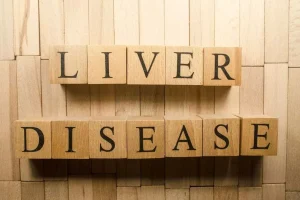
Resveratrol is found in the skin of grapes, as well as in other foods, such as cranberries and peanuts; thus, drinking grape juice, and eating grapes or other foods that contain the antioxidant, may be just as beneficial as drinking red wine. Red wine is fermented for a longer amount of time with the grape skins than white wine is, meaning it will contain more resveratrol, which is why it is typically thought to be more heart healthy. Alcohol doesn’t actually thin the blood; it can only temporarily affect blood flow by dilating blood vessels. Blood thickness is determined by factors like red blood cell count and platelet function. Long-term alcohol consumption can lead to liver disease, cardiovascular problems, and nutritional deficiencies.
A series of studies has shown similar results with calorie sweeteners

Al. [3] reported that sex was an independent factor impacting the coagulation system and the influence of ethanol on hemostasis. They found a significantly decreased clot formation does alcohol affect blood clotting speed and reduced cross-linking of fibrin after alcohol ingestion in healthy male volunteers. Generally, the outcome after severe trauma differs between men and women [28,29].
A concerning relationship between erythritol and blood clots
Recently, Guzzo-Merello and colleagues (2015) reported that, among 282 patients with a dilated cardiomyopathy phenotype, 33 percent had ACM. However, some reports indicate that alcohol-dependent women develop ACM after consuming less alcohol over a shorter period than do age-matched alcohol-dependent men (Fernández-Solà et al. 1997; Urbano-Marquez et al. 1989). Understanding the relationship between alcohol and cardiovascular health is complex.
Alcohol’s Effects on the Cardiovascular System

In those who consumed erythritol, blood levels of erythritol rose dramatically — over 1000 times higher than initial levels. These participants also showed a significant increase in platelet aggregation (clumping) when exposed to certain triggers and an increase in specific markers released from platelets. In a ROTEM based in-vitro study, Engström et al. [11] demonstrated a prolonged clot formation time (CFT) of 34% at an ethanol concentration of 1‰. At an ethanol concentration of 4‰, they found a prolonged CFT of about 118% as well as significantly reduced fibrinolysis. The researchers measured a 1,000-fold increase in blood erythritol levels in the group given the erythritol drink. Those who drank glucose water didn’t have any changes in blood erythritol levels, and their blood glucose levels were only slightly increased.

Alcohol’s Effects on the Bone Marrow and on RBC Production

The idea that alcohol can thin the blood stems from its ability to dilate blood vessels. When alcohol is consumed, it causes the blood vessels to relax and expand, resulting in a temporary increase in blood flow. However, it’s important to note that this is a misconception and does not reflect the true nature of blood thickness. Trait markers could help identify people at risk for alcoholism who could benefit most from early, targeted prevention and intervention approaches. These high-risk populations most prominently include first-degree relatives of alcoholics. Trait markers also could provide important research tools for evaluating the genetic and environmental factors that may predispose a person to alcoholism.

For example, acute disturbances in cardiac rhythm following heavy alcohol consumption over a long weekend—generally referred to as “holiday heart syndrome”—are characterized by specific electrocardiographic changes that are hallmarks of cardiac conduction abnormalities. Clinical studies have shown, however, that every 1-percent reduction in plasma cholesterol levels decreases the risk for CAD by 2 percent. Free cholesterol released from cells initially is incorporated into HDL by an enzyme called lecithin-cholesterol acyl transferase (LCAT), which changes the cholesterol to cholesteryl esters. To remove cholesterol from the circulation, the cholesteryl esters then are transported to LDL by cholesteryl ester transfer protein (CETP) for recapture by the LDL receptors in the liver. In addition, a newly discovered species of HDL called pre-high density lipoprotein binds with free cholesterol in a process known as reverse cholesterol transport, in which excess cholesterol is removed from body tissues, transported to the liver, and excreted in bile. This increases your risk for deep vein thrombosis (DVT), a condition in which a blood clot forms in a deep vein, usually in the leg.
- There’s more than one kind of blood thinner, and they work in different pathways within the body.
- Talk with a healthcare professional to find out which blood thinner you qualify for.
- The composition and consistency of blood remain relatively constant, regardless of alcohol intake.
- While alcohol affects these tests in-vitro, their specific effects in-vivo are unclear.
- This depletion of the store of ATP in the RBC’s leads to increased rigidity of the RBC membranes, eventually damaging the cells.
- Twenty volunteers provided informed consent to drinking red wine, whisk(e)y, or vodka to a target blood alcohol concentration of 1‰ within one hour, calculated with the Widmark formula.
- For example, dogs fed alcohol for 1 year and rats fed alcohol for 8 months showed significant decreases in left ventricular function (Capasso et al. 1991).
- A 2017 review explains that alcohol consumption has complex and varying effects on platelets, which are small blood cells that initiate the coagulation cascade, causing blood to clot.
Cardiovascular Consequences of Heavy Alcohol Consumption
Moderate Alcohol Consumption and Heart Health
- Last year, we expanded our services to include robust mental health services, new locations, and specialized services for our nation’s veterans with more to come this year!
- The associations between drinking and CV diseases such as hypertension, coronary heart disease, stroke, peripheral arterial disease, and cardiomyopathy have been studied extensively and are outlined in this review.
- Erythritol, which can produced artificially in large quantities, doesn’t increase blood sugar, doesn’t leave an aftertaste, and has a milder laxative impact than certain other sugar alcohols.
- These findings provide evidence for physicians that enables them to prevent VTE when managing patients with AI.
- Free cholesterol released from cells initially is incorporated into HDL by an enzyme called lecithin-cholesterol acyl transferase (LCAT), which changes the cholesterol to cholesteryl esters.
- The production of all types of blood cells begins with undifferentiated precursor cells—so-called pluripotent stem cells—that can develop into whichever cell type is needed at that time.
- Moreover, the neutrophil stores that are maintained in the bone marrow to allow a quick response to a bacterial infection were depleted more rapidly in active alcoholics than in healthy control subjects.
